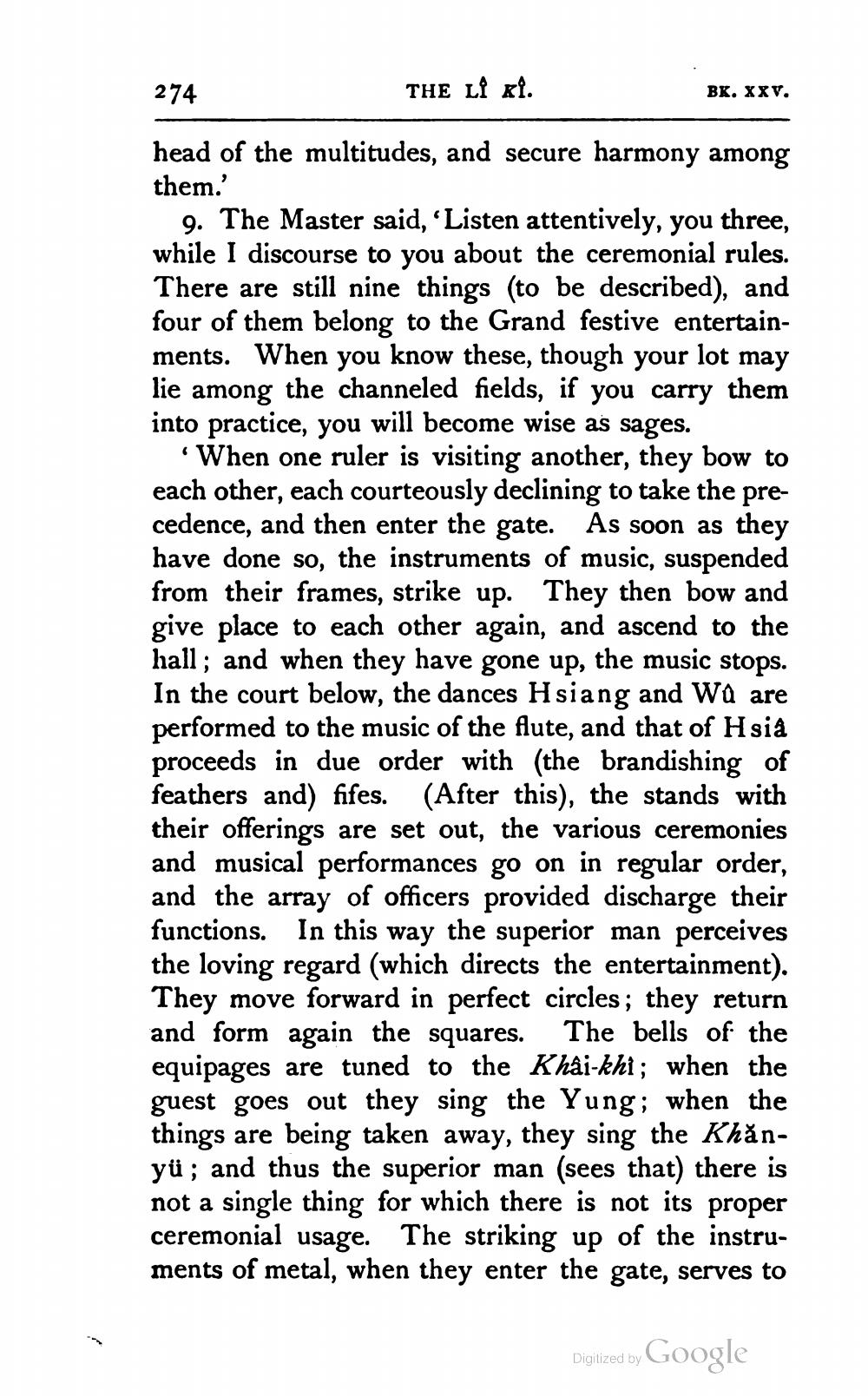________________
274
THE LÎ ki.
BK. XXV.
head of the multitudes, and secure harmony among them.'
9. The Master said, 'Listen attentively, you three, while I discourse to you about the ceremonial rules. There are still nine things (to be described), and four of them belong to the Grand festive entertainments. When you know these, though your lot may lie among the channeled fields, if you carry them into practice, you will become wise as sages.
When one ruler is visiting another, they bow to each other, each courteously declining to take the precedence, and then enter the gate. As soon as they have done so, the instruments of music, suspended from their frames, strike up. They then bow and give place to each other again, and ascend to the hall; and when they have gone up, the music stops. In the court below, the dances Hsiang and Wa are performed to the music of the flute, and that of Hsia proceeds in due order with (the brandishing of feathers and) fifes. (After this), the stands with their offerings are set out, the various ceremonies and musical performances go on in regular order, and the array of officers provided discharge their functions. In this way the superior man perceives the loving regard (which directs the entertainment). They move forward in perfect circles; they return and form again the squares. The bells of the equipages are tuned to the Khải-khi; when the guest goes out they sing the Yung; when the things are being taken away, they sing the Khănyü; and thus the superior man (sees that) there is not a single thing for which there is not its proper ceremonial usage. The striking up of the instruments of metal, when they enter the gate, serves to
Digitized by Google




